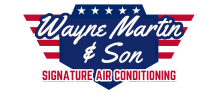Prepare Your Air Conditioner for Hurricane Season
Here in Southwest Florida we know that there are many people who come to live here from other places. In a lot of those places they never had to worry about hurricanes. So as we go into the peak of our hurricane season, which is really from August through the end of October, we thought we’d give you some tips on how to prepare your air conditioner for hurricanes.
If you’re new to the area, you may not necessarily know the difference between a hurricane watch and a hurricane warning. A hurricane watch, means conditions are possible but not imminent and it’s usually issued 48 hours in advance. A hurricane warning means conditions are expected and it comes only 36 hours in advance. But here’s the thing, no matter which one is issued, you’ll want to take some precautionary measures around your house. The good news is in either case that you’ll have time to prepare. And one of the things you’ll want to do is protect your HVAC unit.
Prepare Your Air Conditioner for Hurricane Season
- One of the first things you’ll want to do to prepare your air conditioner when a hurricane is on the way in the next 24 hours is drop the temperature on your thermostat by a few degrees lower than what you normally keep it. Close your windows, doors and blinds as well. This way if you do lose electricity, you’ll be able to keep your house cool for a little while until the electricity comes back on.
- Hurricanes cause power surges, and these are really bad for your ac unit, as well as much of your other electrical appliances. These erratic power failures can damage your compressor and other important electrical components as they shut off and then switch on suddenly. The power surges are also a fire hazard. Once the storm is hitting your neighborhood, shut off power to your HVAC unit via the thermostat and the circuit breaker until you know the storm has passed.
- Be on the offensive when you prepare your air conditioner for a hurricane. Clean up all loose objects in your yard so that they don’t get lodged in your AC unit’s fan or any other part of the unit. Look for lawn chairs, garden ornaments, loose branches etc. and remove them. Store them in the garage or a storage shed where they can’t cause harm.
- Trim your hedges and trees so no dead branches can get ripped off in the storm. Shrubbery should be cut back to be at least 25-35 inches away from your AC unit. These could puncture coils or get jammed inside the fan assembly.
- There are some very delicate components to your AC unit, plus, who knows if your neighbors have been good about cleaning up their loose objects, so you’ll want to cover your unit with a waterproof cover, either by buying an HVAC cover, or simply with a tarp and some rope. This will also protect it from water damage caused by heavy hurricane rains. Be sure to do this before the winds get whipped up. Be sure to remove the tarp before turning the unit back on. If anything on the unit looks nicked or broken be sure to give us a call before turning it on.
- If you’ve bought a new HVAC unit in the past couple of years, Florida building code says it must have come with tie-down straps that secure it to the concrete slab it’s on. But if your AC unit is older, you need to make sure you get tie-downs that can withstand up to 150 mph winds added to it.
- Another important step to prepare your air conditioner for hurricanes and stormy weather is to secure your outdoor unit by checking to make sure all of the bolts are tightened on the unit. Due to the high winds of these storms, AC units can be easily lifted, and although the tie-down straps help, it’s always a good idea to make sure your AC unit is tight.
- After the storm has passed, inspect your HVAC unit, clear the fan and vents of any debris. Check the refrigerant and electrical lines to be sure they are not damaged. If you do see any damage, give us a call before you turn on the unit.
- If you did have a power surge to through your home during the storm, call us to inspect your unit as power surges often blow the ACs capacitor and taking care of this small repair will save you money in the long run.
- Once you’ve turned your AC back on, do another thorough check up. Listen to make sure the unit sounds ok. Sniff around to be sure there’s no signs of smoke or electrical shorting and check the unit regularly over the next few hours to be sure it’s working properly. If you hear anything or see anything that seems off, give us a call and we’ll come check it out.
Follow these tips to prepare your air conditioner for hurricane season. For repairs or maintenance after the storm has passed, give us a call!
We’re here for you!

